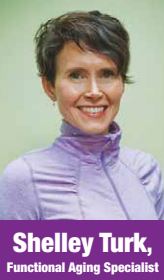
The year 2020 was a nightmare.
If worries about the coronavirus and other news kept you from sleep last year, then read on! I have some suggestions here for getting more restful, healthful sleep in 2021.
The importance of sleep and its role in enhancing our ability to make logical decisions, regulating our appetite, recalibrating our emotions and refreshing our immune system cannot be over-stated.
In the absence of adequate natural sleep, turning to prescription medications isn’t an ideal solution.
In his fascinating book, Why We Sleep: Unlocking the Power of Sleep and Dreams, author and sleep researcher Dr. Matthew Walker points out that these pills induce a “sleep” that is lacking the largest, deepest brainwaves and therefore lacking in complete restorative properties as well. In addition, they can cause many undesirable side effects.
So what can we do to improve our sleep naturally?
My number one recommendation for better sleep? Exercise, of course. Nothing helps you sleep better than working your body. This is true for all kinds of exercise – especially resistance training.
On top of that, I suggest focusing on your “sleep hygiene” by doing the following:
• Keep your bedroom cool and dark.
• Go to bed and wake at the same time every day. Weekends, too! This makes a big difference.
• Limit bedroom activities to sleep and intimacy.
• Turn off TV and electronic devices an hour before bedtime.
• Try meditating or doing deep breathing exercises at bedtime.
• Get outdoors for sunlight every day to keep your body’s natural sleep clock ticking on time.
• Avoid caffeine after lunch.
• Limit food that’s high in sugar, saturated fat and processed carbohydrates – and, for some, spicy food at night.
• Eat more plants, fibre and foods with lots of unsaturated fat, like nuts, avocados and fish.
• Watch the amount of alcohol you consume.
• Don’t drink anything close to bedtime. You don’t need another reason for a late-night bathroom visit!
As children, some of us were raised to believe that sleep was a sign of laziness. Nothing is further from the truth. Although it varies from person to person, generally, we need a solid 7 to 9 hours each night to keep our bodies and our brains functioning properly.
After 65, sleep issues can increase accidents, falls, cognitive decline, depression and more, so it becomes even more important to prioritize sleep if you’re having trouble.
Start with the suggestions above and if that doesn’t help, it’s a good idea to talk to your doctor or a sleep specialist.
-Shelley Turk (Functional Aging Specialist and owner, ProActive Fitness)

Leave a Reply